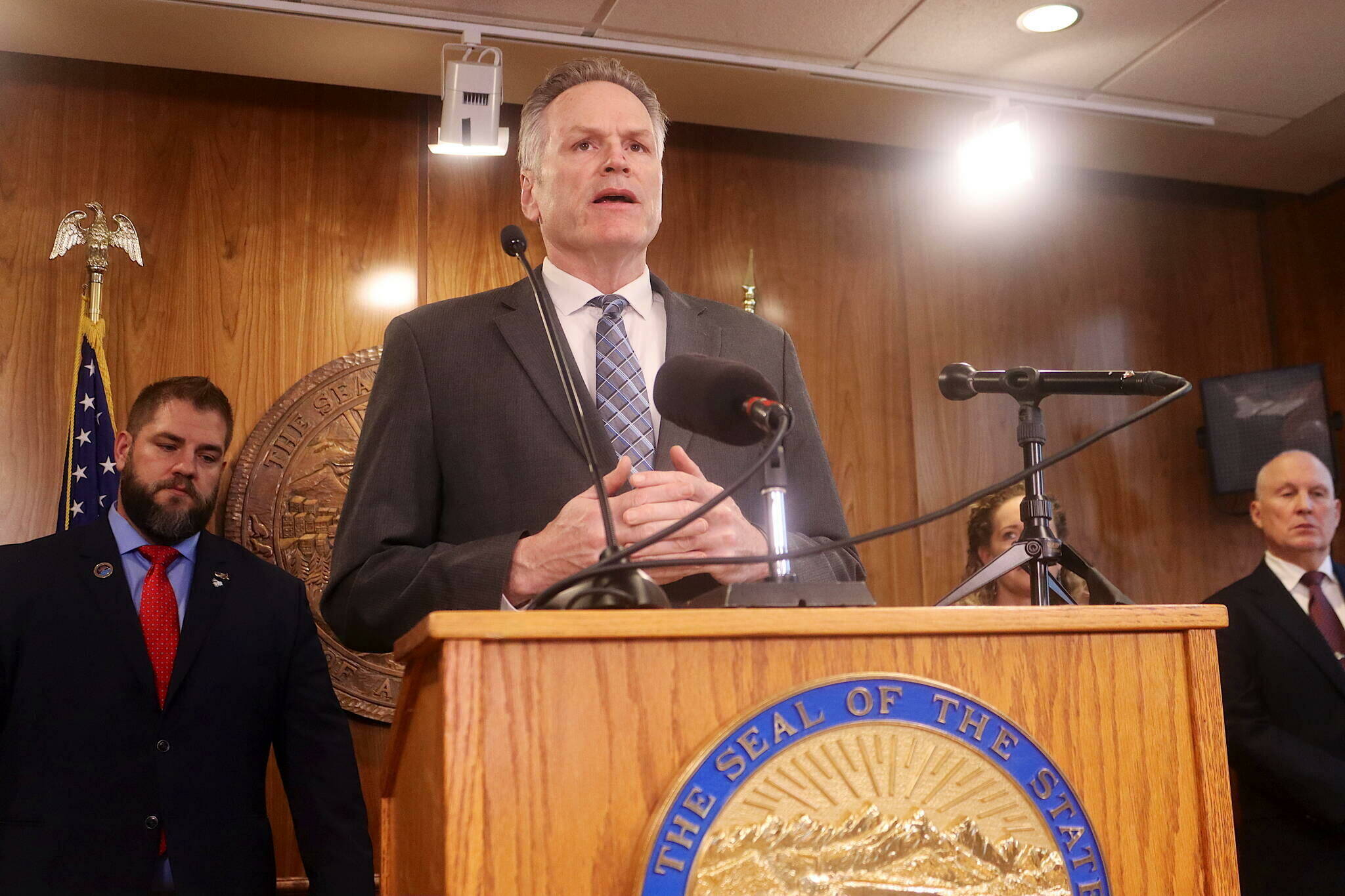Gov. Mike Dunleavy has a choice for his final two years on the job: He can continue talking about how state law requires him to include an outrageously large Alaska Permanent Fund dividend in the budget — even though it would dig a deep budget hole which, thankfully, legislators will never approve — or he can help solve the problem.
It looks like he is sticking with the irresponsible approach.
He proposed a budget last week that is politically popular with his supporters but which he knows the state cannot afford without drawing down its remaining reserves to dangerous levels. He says the Legislature needs to do something about it.
He offers no specific solutions other than hoping for more oil wells in the years ahead, far too late to solve the problem for the next budget year that starts July 1, or the one after that or the one after that. Besides, future oil revenues are as bankable as political promises, which is to say they’re not.
The governor’s proposed budget for next year shows a $1.5 billion deficit — and that’s even before lawmakers consider an increase in state aid to local school districts, which communities, including Wrangell, desperately need.
Yes, five years ago Dunleavy tossed out several proposed constitutional amendments that he packaged as a long-range fiscal plan to balance state finances. They wouldn’t have solved the problem, but at least it was an effort. The poorly crafted and flawed package went nowhere in the Legislature.
Since then, nothing. No proposed legislation from the governor to revise the dividend calculation, no constitutional amendments, nothing but talk. And, unlike education funding, talk is cheap. It’s like he gave up and decided legislators could take the public heat for what needs to get done and he could retire as a champion of the PFD.
And while talk is cheap, a chart on the governor’s budget page is misleading. The cost of the governor’s proposed $3,800 dividend is nowhere to be seen on his spending chart, as if it magically doesn’t exist as the single-largest expenditure by far in his proposed budget. Hiding the truth is worse than cheap talk — it’s dishonest.
The honest truth is that the state could pay a $1,200 dividend, provide a reasonable increase in funding to education and balance the budget — without drawing down savings. The governor could take the lead in proposing and pushing for a change in the dividend formula in law to help solve the spending problem.
But Dunleavy didn’t propose any of that last week. Instead, he did nothing but the minimum that state law requires, which is to present a budget. The law doesn’t require that the budget make sense.
This editorial was originally published by the Wrangell Sentinel.

